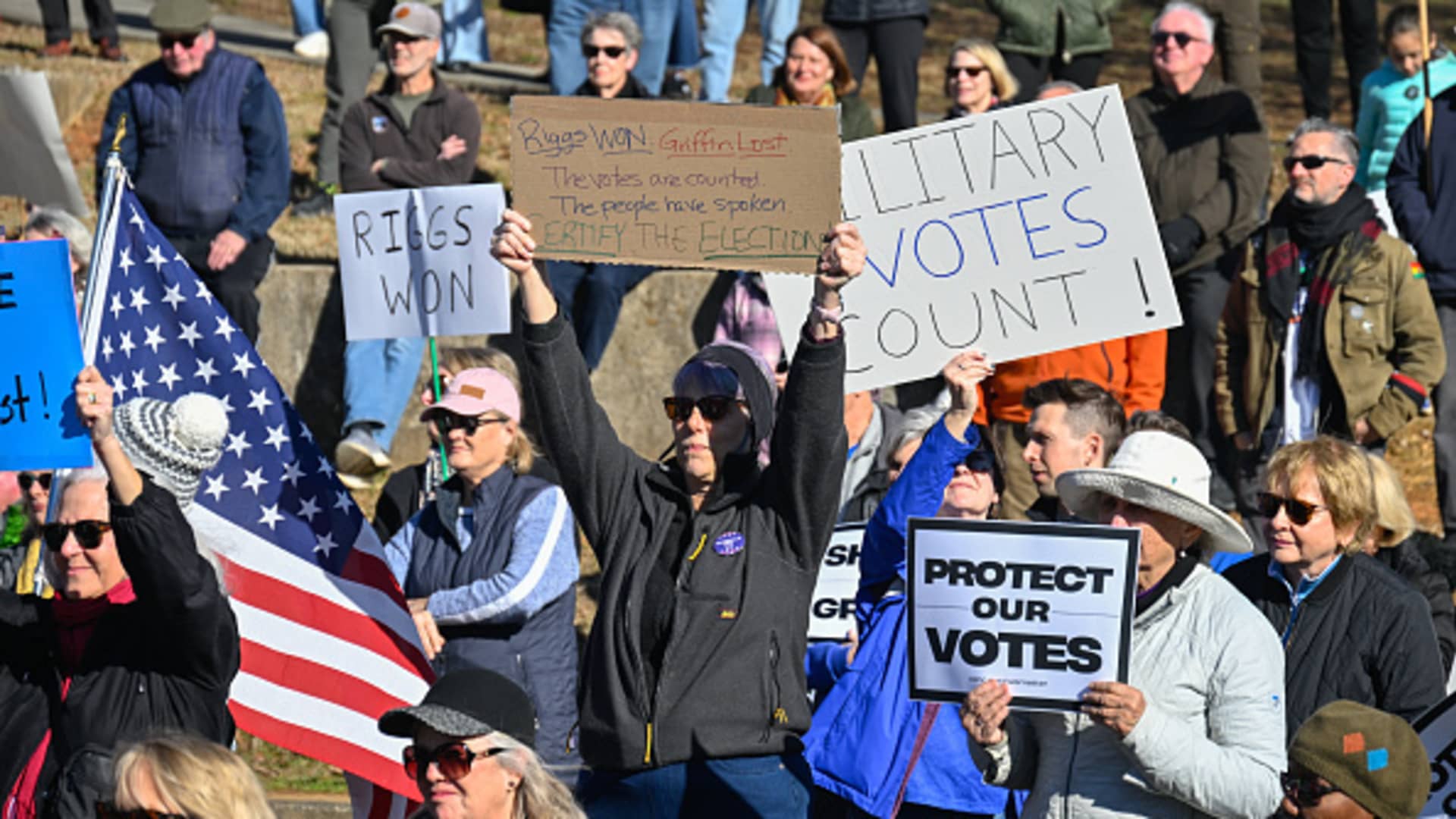The North Carolina Supreme Court Race: A Legal and Political Deep Dive
The 2024 North Carolina Supreme Court race has become a microcosm of the state’s political and legal tensions, with the fate of the seat hanging in the balance. The dispute, centered around the certification of contested votes, has seen federal judges add layers of complexity to an already intricate situation. This analysis explores the key developments, legal arguments, and potential implications of the ongoing battle for the North Carolina Supreme Court seat.
The Legal Landscape
The Spark of Controversy
The race between Democratic incumbent Allison Riggs and Republican candidate Jefferson Griffin has been a rollercoaster of legal challenges and ballot disputes. With over 5.5 million ballots cast, the narrow margin and contested votes have kept the outcome unresolved for months. The legal battleground has been set, with both sides presenting their arguments and evidence, and federal judges playing a pivotal role in shaping the narrative.
Federal Judge’s Ruling: A Turning Point
U.S. District Judge Richard Myers’ ruling that disputed ballots must remain in the final count was a significant turning point. This decision, if upheld, would secure an electoral victory for Riggs. Judge Myers agreed with Riggs’ argument that discarding the disputed ballots would violate the U.S. Constitution, directly impacting the certification process and the final tally of votes. The ruling was a crucial moment, but the story was far from over.
The Certification Order and Appeal Process
Following the initial ruling, Judge Myers ordered the North Carolina State Board of Elections to certify Riggs as the winner, effectively rejecting the ballot challenges presented by Griffin. However, the judge placed a one-week hold on his decision to allow Griffin the opportunity to appeal. This temporary hold added another layer of uncertainty, with the final outcome still not guaranteed.
The North Carolina Court of Appeals: A New Twist
Adding further complexity, a three-judge panel of the North Carolina Court of Appeals ruled that more than 65,000 votes cast in the contested race must be recounted and verified. This ruling, after months of legal back-and-forth, highlighted the importance of election integrity and the need for thorough verification of all votes cast. The recount order was a testament to the contentious nature of the race and the high stakes involved.
The Political Chessboard
The Supreme Court’s Role in North Carolina’s Future
The outcome of this race has significant implications for the North Carolina Supreme Court and, by extension, the state’s legal landscape. The addition of a Democratic justice could influence future rulings on a wide range of issues, from voting rights and healthcare to social justice. The court’s composition could shift, making the race a critical battleground for both parties.
Public Trust and the Electoral Process
The prolonged legal battle and ballot disputes have raised questions about public trust in the electoral process. The contentious race has underscored the importance of transparency, fairness, and clear guidelines for handling disputed ballots. The outcome of this race could have a lasting impact on how future elections are conducted and perceived in North Carolina.
The Road Ahead
A Test of the Electoral System
The 2024 North Carolina Supreme Court race has been a test of the state’s electoral system and the legal framework that governs it. The decisions by federal judges and the North Carolina Court of Appeals have added layers of complexity, with the final outcome still hanging in the balance. As the legal battles continue, the public and political stakeholders await the resolution of this contentious race, which could shape the future of the North Carolina Supreme Court and the state’s legal landscape.
A Pivotal Moment for North Carolina
The certification of Allison Riggs’ victory, if upheld, would mark a significant moment in North Carolina’s political history. However, the potential for further appeals and legal challenges means that the final chapter of this saga is yet to be written. The outcome of this race will not only determine the composition of the Supreme Court but also set a precedent for how future electoral disputes are handled in the state. The eyes of the nation remain fixed on North Carolina, as the battle for the Supreme Court seat continues to unfold.
Conclusion
The Unfinished Symphony
The 2024 North Carolina Supreme Court race is far from over. The legal battles have added layers of complexity, with the final outcome still uncertain. The certification of Allison Riggs’ victory, if upheld, would be a significant moment. However, the potential for further appeals means that the final chapter of this saga is yet to be written. The outcome of this race will shape the future of the North Carolina Supreme Court and set a precedent for handling electoral disputes. As the legal battles continue, the nation watches, awaiting the resolution of this contentious race. The symphony of justice is still playing, and the final notes are yet to be heard. The people of North Carolina, and indeed the nation, await the resolution of this pivotal moment in their political and legal history.

